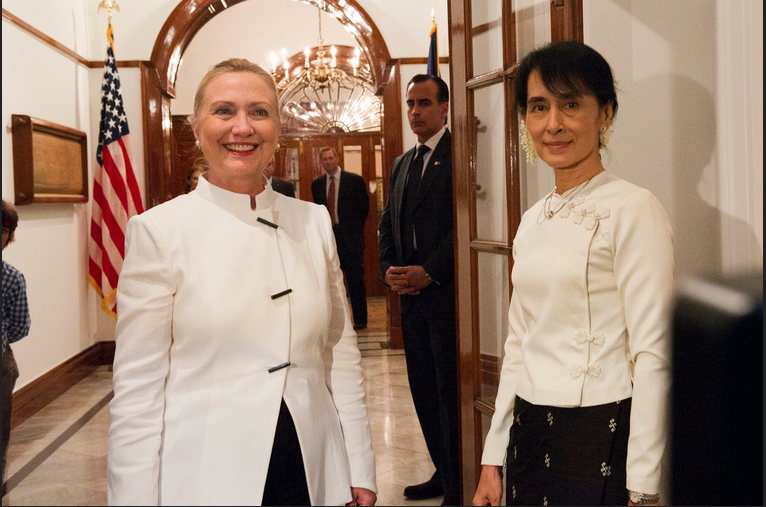You can be the king but watch the queen conquer: Women’s History Month celebrates women
Demolishing stereotypes, ascending the corporate ladder and gaining the right to vote, women have accomplished much over the last century. To celebrate these strides in gender equality, Women’s History Month was established in 1987 to swivel the spotlight on the gains of all women, past, present and even future. This year, the theme involves weaving together the stories of women, both individually and collectively, into the fabric of the nation’s history.
Women’s History Month continues to be an important tradition today. Even though conditions for women have substantially improved, sexism and gender inequality do still exist. Exemplifying the lack of political power that women still grapple with today, Anne Kornblut said, “The share of women in office in the United States is smaller than in more than seventy countries in the world, from Cuba to Rwanda to Norway” and “The U.S. ranking of women in politics is dropping while women’s political participation elsewhere is growing. There are fewer women in the U.S. Congress today than in the assembly of Afghanistan.”
Even on a daily basis, regular, average women struggle with sexism from various sources. With thousands of entries on The Everyday Sexism Project expressing disgruntlement at the various forms of discrimination they receive, ranging from having to perform at twice the quality of their male counterparts to even be considered seriously to getting unwanted catcalls from the street, a compelling picture of gender inequality in America is made.
To alleviate one widespread form of sexism, the erasure of female accomplishments in history, the Women’s History Month project aims to bring female accomplishments in history to the forefront and to inspire the women of the present and future with them. Ms. Anna Mae Grimm, social studies teacher and a teacher for a Women’s Studies course in college, stated,
The stories of these women continue to inspire the women of today, all of whom either already or will go on to inspire the women of tomorrow. Revealing influential figures who have shaped her life, Ms. Grimm claimed that Aung San Suu Kyi, a Burmese opposition politician and chairperson of the National League for Democracy, and Maya Lin, an American architect, have always been her inspirations since they “have integrity and always stand up for what they believe in.”
Kaitlin Geiger, junior, expressed the one female figure in her life who had always motivated her to be a better person: Rosa Parks, an African-American woman who ignited the spark for the Civil Rights Movement when she refused to endure the degrading humiliation of giving up her bus seat for a white man. “She stood up for what she believed in no matter what turmoil would get thrown her way,” Geiger said.
Eliza Imbrie, freshman, also shared her female idols growing up. “I admire Marie Curie because she worked really hard and remained dedicated to her field even when it caused her to get cancer,” she said. “I also respect Rosalind Franklin a lot, because even though she got the credit stolen from her by Watson and Crick, she still accomplished a lot in researching DNA.”
These women not only inspire other women, but they also motivate men as well. Mr. Scott Heibler, biology and AP Environmental Science teacher, asserted that the female figure that inspired him growing up was Rachel Carson, a Marine biologist and conservationist who wrote Silent Spring, a book that brought attention to the fact that pesticides are detrimental to wildlife, particularly birds.
“I admire her since she was willing to challenge the chemical companies, despite the harsh attacks they were going to level at her,” Heibler explained. “She was at the forefront of an environmental awakening in the US.”
Weaving the stories of these women together, these stories inspired people from all walks of life at Homestead to follow their dreams and become better people. With Women’s History Month winding to an end, as a populace, Homestead has reflected on the contributions of women and allowed these figures to inspire them to achieve their loftiest dreams. Perhaps in the process, some will leave their own mark in history as well.

Madina Jenks is a senior and a new copy editor for Highlander Publications. As a copy editor, her jobs are pretty simple: write and help others write....






